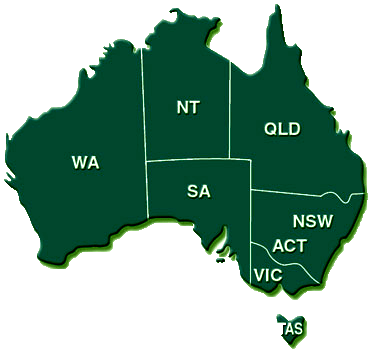The most depressing item of expenditure in the federal budget was not even specifically mentioned. But it was there in the weeds, the money carefully tucked away. We are going to spend $2.5bn on buying 75 main battle tanks and some associated kit from the US. And that is just part of more billions of dollars we’re spending on other, hugely heavy (and therefore largely unusable) tracked, manned combat vehicles for the army as part of the Land 400 program.
We know about this purchase partly because, in the vaguest, most generic terms, it was in the defence force structure plan. We know about it more specifically because, as my colleague Ben Packham revealed, the US Defence Security Co-operation Agency announced its approval for the sale. The US has laws which oblige its agencies to announce when such foreign sales have been approved, even if they haven’t been finalised.
Why do I find the tank purchase so utterly depressing? It’s not that they are instruments of war. All civilised human beings hate war. But if you value peace, prepare for war.
It’s not the martial aspect of tanks that is depressing. It is instead the sheer idiocy and the anachronistic frivolity of Australia acquiring tanks and similar heavy, tracked vehicles which can never be of the slightest military use to us. And our doing this at a time of acute strategic challenge in our own region, when our maritime assets are woefully inadequate to the need, reflects the kind of high-minded strategic blindness, the paradigm paralysis and inertia of the defence organisation. Australia has not used a tank in anger since the Vietnam War. Our combat troops were mainly gone by late 1971, so that’s 50 years in which we have had no use for tanks. But we’ve had them all that time.
I was one of those commentators the army convinced of the utility of tanks the last time the tank debate came round 20-odd years ago. We were all sold a pup. We have just come to the end of 20 years of near continuous deployment in Afghanistan and Iraq. In all that time army was the lead service deployed. Yet not for a single moment did we ever seriously consider deploying a tank, despite their alleged relevance to counterinsurgency. Nor did we use them in East Timor. Nor will we ever use them anywhere.
If 20 years of military activity in the deserts of Iraq and Afghanistan didn’t once furnish a moment when tanks were useful, how on earth can the maritime challenges of the Indo-Pacific today, made so dangerous by China’s huge military build-up, do so now? If the tank purchase is not finalised, we should pull out of it.
Will we use tanks to defend shipping in the South China Sea? Can tanks take out enemy submarines? Can tanks deliver attack missiles over hundreds of kilometres? How could we construct a scenario in which our tanks could be used? Perhaps if a polite, well-behaved enemy would, in an orderly fashion, establish a lengthy air convoy and land a few dozen of its tanks say 50km north of Alice Springs, in the dry season of course, we could, provided we had plenty of notice, laboriously transport our own 75 tanks up to Alice Springs. There we could meet them on a discreet battlefield of medieval neatness and win a decisive victory – the tanks that saved the Alice!
To put the opportunity cost at its simplest, for the cost of the tanks we could buy another squadron or two of Super Hornets and put long-range missiles on them. This would increase our local air superiority while also giving us greater ability to hit enemies further away from us. But this would need new doctrine!
The Prime Minister has told us our historical moment reminds him of the 1930s. Defence Minister Peter Dutton has rightly observed that a war by China to take Taiwan cannot be discounted. Mike Pezzullo, the Secretary of the Department of Home Affairs, has observed that our times echo to “the drum beats of war”. This column has supported all these statements as part of a mature, sombre, sober, necessary and somewhat urgent dialogue the government is having with the Australian people.
Yet the government’s own actions do not altogether and always reflect this urgency. We are still reproducing essentially the same force structure we had in the 1960s, just in newer and better versions. We’re still driving a family sedan when we need a fleet of pick-up trucks and a speed boat.
We are still stuck, for example, with the determination to have 100 fast jets, no more, no less, to defend our vast continent and to project air power in our northern approaches. Is there anyone on God’s green earth who believes that 100 fast jets is enough for that task?
In the past week, China’s Global Times has editorialised that in the event of a conflict over Taiwan our key military installations would be subject to Chinese missile strikes. Are any of our military facilities hardened? Do any of them have their own missile defences?
A number of strategic analysts appreciate the urgency of our circumstances. To its credit, so do some of the political class. But the public service just rolls along making decisions at the pace they’ve always done, commissioning papers, putting up reasons for never changing what it is we’ve always done, 100 fast jets, 75 tanks, some brass bands. All our big new capabilities, submarines and even the new frigates won’t start to come into service until the early 2030s at the earliest.
Yet we could buy more jets if we wanted to right now. We could buy lots of drones. We could manufacture lots of Loyal Wingman unmanned aircraft to act as airborne missile trucks. The government has announced that we will start manufacturing missiles in Australia. Hallelujah.
Yet when will this start? How many will we make? We have purchased 250 long-range anti-ship missiles. Yet most nations, even most militias, for whom missiles are important hold war-fighting stocks of tens of thousands of missiles.
Nowhere in our defence force do we have sustainable mass. We have just spent countless billions of dollars on every social service the mind can dream up.
But have no fear, if we confront a security emergency in the next decade, we can fire one missile a day for several weeks, offer a promissory note on future capabilities, and deploy our tanks.
Does that make us secure?
Greg Sheridan: Foreign Affairs Editor The Australian 13th May 2021



